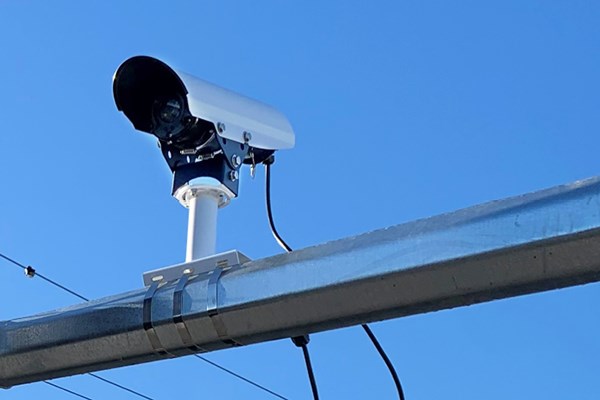Richmond Mayor Malcolm Brodie initiated a move to get newly installed traffic cameras to record better quality footage to help police, if needed.
The City of Richmond recently installed 110 traffic cameras with strict guidelines from the Office of the Information and Privacy Commission (OIPC) that they blur out faces and licence plates.
But in a 7-1 vote, council supported challenging the privacy commissioner's ruling, saying they wanted the cameras to have clearer footage in order to help police investigate crimes.
This idea was first floated last week by council candidate Andy Hobbs, running in the May 29 byelection, in light of the recent spate of public shootings, including one at the airport on Mother’s Day when a gangster known to police was shot and killed outside the international departures terminal.
Brodie is endorsing Hobbs, a former Vancouver police superintendent, in the byelection.
“Bad guys are escaping from a shootout at the airport, they go through intersection cameras and the privacy commissioner is worried about the bad guys who are doing the shooting and their right to privacy,” Brodie said at Monday’s council committee meeting, calling it an “aberration to what the situation should be.”
He added there should be control over the images, for example, a judicial review before they’re released to police, but he wants them to be in “high definition” in order to “safeguard the rights of everybody.”
The decision by the majority of council was to write to the solicitor general, the premier and local MLAs to ask for a change to the cameras.
Only Coun. Michael Wolfe opposed the motion, saying he wanted to discuss the issue in camera first.
Wolfe told the Richmond News he opposed it for procedural reasons, saying council didn’t have enough time to review the issue.
The motion was sent to councillors just five hours before the meeting – normally, motions come to council five business days before they’re dealt with, although emergent issues can be added to a meeting agenda.
Wolfe said he also wanted to hear from the chief superintendent of the Richmond RCMP – who wasn’t at the meeting - and from experts, “not just the mayor.”
Wolfe said he’s concerned about the privacy of Richmond residents, and he wanted to ask questions about the security protocols in place for the CCTV footage that would be captured.
He had other questions as well, but he claimed he was “bullied out of a proper discussion.”
After Wolfe said he opposed the motion, Brodie said he found it “beyond my belief” that when someone shoots at the police – which happened at No. 3 Road and Sea Island Way after the Mother’s Day shooting – the city’s camera footage can’t be used for an investigation or for evidence in court.
Furthermore, he added, video can be captured on dashcam or on a cellphone and there is “absolutely no restriction on that,” Brodie said.
“This is inconsistent, this is thinking of helping the bad guys and, frankly, I think … if you can’t support this (motion), you really need to rethink this matter.”
When the cameras were first approved, the OIPC told the City of Richmond they needed to blur out faces and licence plates, and that they were not meant for general surveillance. Furthermore, the footage had to be managed by the city.
The cameras were installed at 110 Richmond intersections in April.



